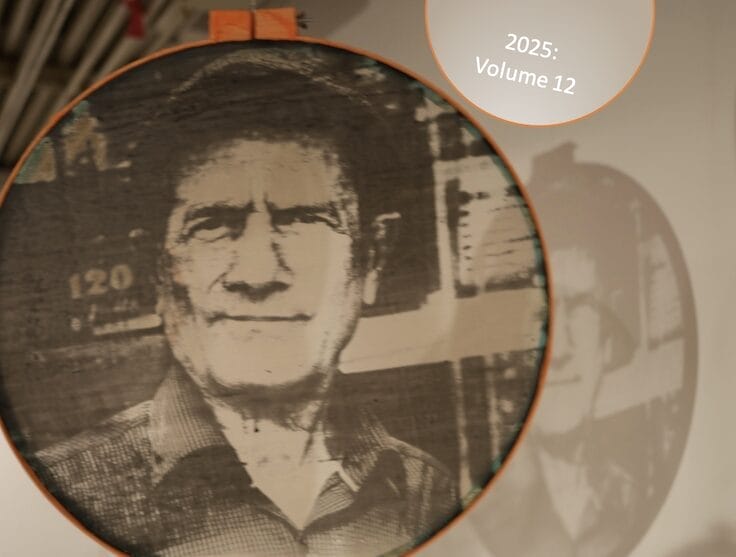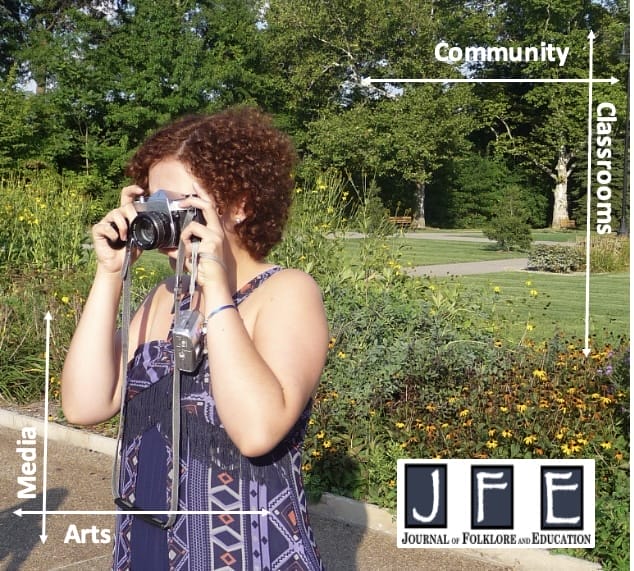Cultural Frameworks for Transformative Documenting and Learning
“Storytelling is pedagogy. To inherit culture in the digital age is to honor tradition while embracing innovation, to archive the past while imagining futures, and to make learning a process of shared transformation.”
— Los Herederos, Guest Editors
From teaching with AI to museum curation animated with augmented reality, and from the analog zine to a digital documentation student project, this issue offers educators case studies, activities, and creative entry points to engage the art of documentation in our learning spaces.

2026 Call for Submissions
Teaching with Monsters: From Whimsy to Shadow, with Guest Editors Camille Maria Acosta and Sheila Bock
The 2026 Journal of Folklore and Education seeks submissions that recognize monsters, cryptids, and the legendary beings of our family stories and community narratives as powerful communicative tools in the classroom and beyond. Submissions due April 1, 2026
Support JFE
Since 2014, our peer-reviewed flagship journal for Folklore and Education annually publishes outstanding content from authors who know the value of teaching local knowledge, art, stories, and culture.
Why donate?
- You are a part of keeping this resource free and available for all educators, artists, and culture workers who rely on it as a valued, relevant resource.
- You will sustain our efforts to amplify community histories and stories–the voices of everyday people–for learners of all ages in a time when it matters more than ever to avoid erasure.
- Individual donors will help us maintain our ability to publish high-quality materials that are culturally relevant and matter.

A Trusted Resource Since 2014
As the flagship journal for Folklore and Education, JFE annually publishes outstanding content from authors who know the value of teaching local knowledge, art, stories, and culture.
Paddy Bowman and Lisa Rathje, Editors

